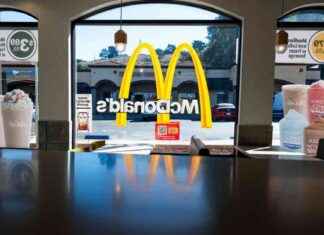For every dollar raised through charitable gambling that the Irving Community Association gives to food shelves and children’s programs, it pays more than $2 in taxes.
The Duluth-based nonprofit paid $733,000 in state taxes and fees last year, more than double the $306,000 it spent on good works, according to its gambling manager.
Irving belongs to a group of nonprofits with gambling operations now asking state lawmakers for millions in tax relief to free up more revenue for charity.
But the Minnesota Department of Revenue has expressed concern about losing dollars that go into the state’s general fund and help pay for U.S. Bank Stadium.
The bill has passed through two House committees with bipartisan support, said Allen Lund, executive director of the trade group Allied Charities of Minnesota.
“Our mission is to give back to the communities and take care of the children,” said Genny Hinnenkamp, charitable gambling manager for the Irving association. “But you wonder, is it worth just being a tax collector for the state?”
Hinnenkamp, who testified in front of the House Taxes Committee last week, said some lawmakers seemed surprised that the tax bills for nonprofits were so much higher than the amount left for charity. She said it especially stings to be paying for U.S. Bank Stadium, a facility built primarily for professional athletes, while her nonprofit — which helps little leagues, youth hockey associations and after-school programs — has yet to replace its longtime headquarters, lost to Duluth’s 2012 floods.
Minnesotans spent $1.5 billion on charitable gambling in fiscal year 2016, including pulltabs, bingo and meat raffles. More than 80 percent of that was paid out in prizes by 1,200 participating nonprofits.
Overall, nonprofits that use gambling paid an estimated $60.6 million in state taxes and fees levied against their operations last year while directing $62 million to their charity work, which includes the support of veterans, youth sports and people with disabilities, according to the Minnesota Gambling Control Board’s annual report.
Organizations are taxed on their gross receipts, minus prizes paid, at a progressive rate that ranges from 9 to 36 percent for pulltabs, tip boards and electronic link bingo. They’re taxed at a rate of 8.5 percent for other games.
“The charities are fast approaching the point where they will be paying more to the state than they have for their communities’ needs and missions,” Lund told the Taxes Committee.
The proposed law change would create a tax exemption for the money that nonprofits use for charitable missions. Nonprofits would still pay taxes on funds they use for operational costs.
Lund said the proposed change would cut taxes by an estimated $16 million per year, shifting that money directly to charity work.
But Paul Cummings, tax policy manager for the state Revenue Department, cautioned lawmakers that the cost of the proposed tax relief “could be significantly greater than $26 million” and affect the amount that goes to U.S. Bank Stadium.
Lawmakers last changed the tax structure for charitable gambling in 2012 to help fund the construction of U.S. Bank Stadium. The first $37 million collected in taxes from charitable gambling is deposited into the general fund, with the balance going toward the funding of the stadium.
“The elephant in the room is the 2012 stadium bill. We do not believe the intent of that legislation was to harm charitable gambling in Minnesota, but that is becoming the net effect of that bill,” Lund told the Taxes Committee.
Rep. Diane Loeffler, DFL-Minneapolis, expressed some skepticism about changing tax laws and said she worries about the expansion of gambling, which can breed compulsive gambling issues.
“It shows up in all kinds of social costs in our state budget,” she said.
“This bill is not about the expansion of gambling,” Lund said. “This bill is about getting more money back to your communities where we address needs.”
Our editors found this article on this site using Google and regenerated it for our readers.







